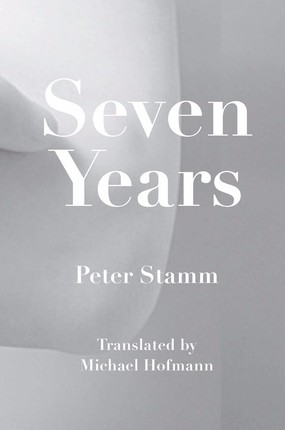How does modern fiction depict adultery?
Some of the most memorable novels on infidelity and afterwards, especially afterwards.

Deception
“I’m an écouteur – an audiophiliac. I’m a talk fetishist.”
Deception opens with an American writer and an Englishwoman having an affair outside of their respective marriages. They meet in a secret hiding place in the busy Notting Hill district of London, in a room without a bed, and reveal themselves gradually as they talk before and after sex. The novel is solely crafted out of their conversations and this is all there is to this book, and all there needs to be.
But what’s more interesting is that the American writer in the novel is named “Philip”, and is writing about a character named “Zuckerman”, who is considered by critics to be Roth’s alter ego (Roth is an American writer too). It may leave one with a question about the title itself. Deception. Does it refer to the adultery committed in the novel or the clever game Roth plays on his readers?
Published in 1990.

Intimacy
"There are some f***s for which a person would have their partner and children drown in a freezing sea."
Relentlessly honest and a ruthless, Intimacy begins with Jay preparing to leave his wife Susan and their two sons and slink away in the thick of the night after his young girlfriend Nina says to him, "If you want me, I’m here". In the rest of the pages he makes a case for why he leaves his marriage which for some critics appears like the same old tale of sexual infidelity and, for others, a "devastating and insightful portrait of how – for better or for worse – betrayal can become a form of self-renewal".
Kureishi, who began his career by writing pornography, was constantly hounded by relatives and people close to him as he used personal details of their lives in his novels. Intimacy was the most controversial in this regard, leading to an unpleasant public row with his former partner and the mother of two of his children.
The novel stands slim at 138 pages and its time span is roughly 24 hours. It was loosely adapted to a movie of the same title in 2001.
Published in 1998.

Seven years
"It seemed to me that everything had just happened to me, and I was as little to blame for it as Sonia and Ivona. I wasn't a monster, I was no better and no worse than anyone else."
On the surface, Seven Years is about the seven-year itch a couple faces in their married life and then “something” happens which sets the conflict in motion. It’s seemingly ordinary, but only on the outside. “It gets under your skin,” Zadie Smith says, “and then it really fucks with you.”
Everything is beautiful about Alex and Sonia – the way they looked, the home they lived in, the places they visited, the people they met. But Alex inherently seeks the ugly. He uses Ivona, a Polish immigrant who works as a cleaner, to satisfy this rare desire and consequently rescue him from “project marriage”. What he finds repulsive in her are the very things that attract him to her – her grubbiness, her neediness, her dullness. “She is able to reach some unspeakable atavism within him,” says Will Wiles in his review, “that the rest of his highbrow architect lifestyle doesn’t touch, ‘a warm, dark sensation, a kind of overwhelming safety.’”
In Seven Years, the Swiss writer Peter Stamm gives us two most memorable characters – Alex who is so human and so utterly perplexed at his own choices that it’s difficult to hate him for his mistreatment of Ivona, and Ivona herself who gives the novel its colour and complexity and saves it from being just another novel about an extramarital affair.
Published in German in 2009. Translated into English by Michael Hofmann, published in 2012.

It Rained All Night
"Two human beings will spend their entire lives together. Not five or fifteen years, but their entire lives – what more atrocious a tyranny, what more inhuman an ideal could there be."
One night when Noyonangshu comes home he discovers his wife Maloti sleeping in post-coital, semi-nude bliss after having made love with his friend Jayanto. He knows what’s happened, and is intellectually convinced that it’s a natural outcome of an impossible demand – that while we can change friends, jobs, neighbours, we have to remain with one partner all our lives. But still he lives with the sense of betrayal.
Maloti explains her need to be loved for who she is and not for who her husband wants her to be. But still she has no intention of leaving her family. The two are caught in a difficult space where both know what the truth is but neither will acknowledge it. While Nayonangshu plots revenge – divorce, no custody, no alimony – he also knows he will not do it, and just go along with the charade. As will Maloti.
Told in alternate voices, wife’s and husband’s, with the last chapter being the author’s, the novel was banned in 1967 on charges of obscenity. The 63-year-old writer was made to stand inside a wire cage and the copies of his book were seized and burnt along with the original manuscript. The conviction was later overturned by the High Court and the book went on to become a bestseller resonating with the Indian reader even today.
Published in Bengali in 1967. Translated into English by Clinton B Seely, published in 2010.














